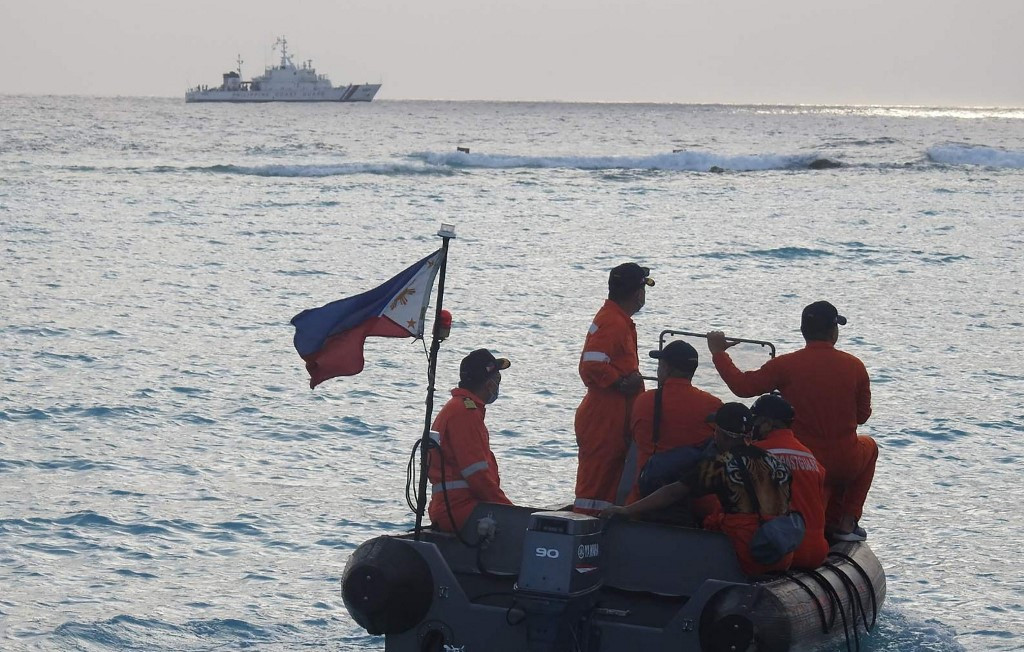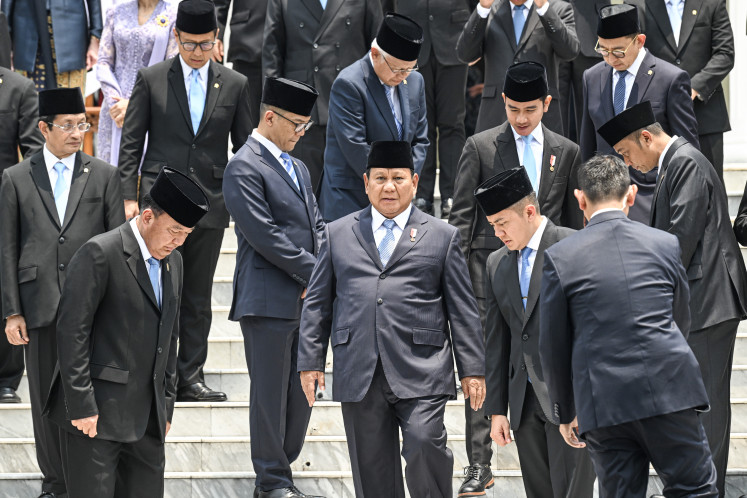Popular Reads
Top Results
Can't find what you're looking for?
View all search resultsPopular Reads
Top Results
Can't find what you're looking for?
View all search resultsIndonesia’s defense diplomacy amid regional dynamics
Given that the new alliance will enable Australia to operate nuclear-powered submarines, Indonesia requires a special arrangement with its southern neighbor for the safety of its waters.
Change text size
Gift Premium Articles
to Anyone
T
he current regional dynamics in Southeast Asia are no less sexy than the issues developing on the Korean Peninsula or in the Middle East. We can even say that ASEAN is facing a trickle-down of issues.
While the long-standing South China Sea (SCS) dispute remains unaddressed, ASEAN is dealing with a tricky situation in which its ASEAN Outlook on the Indo-Pacific (AOIP), which promotes a more humane direction on the basis of equal rights, peace and mutual benefit has been juxtaposed with other Indo-Pacific strategies that are intended to contain China.
Indonesia and other ASEAN countries aim to bridge the interests of the West and East and oppose such rivalry. Indonesia assumes that Southeast Asia is affected the most by the competition between the two global powers and their alliances. As a result, there is a struggle for influence and changes in the political structures of countries in the region, influenced by globalist interests.
My take regarding the regional developments is as follows: 1) The SCS situation affects the national interests of each country in the region, especially ASEAN member states; 2) Indonesia's national interests must be reflected in the implementation of defense diplomacy; and 3) Indonesia should strive to maintain good neighborhood relations with regional countries, including ASEAN member states, in order to realize mutual prosperity in a sustainable manner.
Making the Southeast Asia region an entity within the ASEAN framework is a necessity, but interests in maintaining presence and influence have driven the urges of superpowers to assert dominance in the SCS, an area full of ship crossings and natural resources in the forms of fisheries and oil and gas resources.
The rise of China, which unilaterally claims almost the entire SCS as its territory, has provoked mixed reactions, initially only from countries located around the South China Sea. But China's initial intention, which did not involve countries outside the region -- like the United States, Australia and Japan -- of a bilateral approach with each Southeast Asian member country, has triggered a chain reaction.
ASEAN member states that have built close relationships with either global players in the West, or China in the East, have demanded greater attention in order to balance their bargaining power through a security approach. Unsurprisingly, the negotiations over the South China Sea Code of Conduct (CoC) between ASEAN and China has moved at a snail pace and cannot keep up with the latest developments in the SCS.
Like other countries, Indonesia pursues national interests in international fora to strengthen its sovereignty and welfare, as well as to promote cooperation with other countries through smart diplomacy.
Changes to the sovereignty of Indonesia’s territorial boundaries began with a bold statement from then prime minister Djuanda in 1957 who unveiled a concept later known as the Djuanda Declaration. It stated that all waters surrounding or connecting the islands of the archipelago are an inseparable part of Indonesia's sovereign territory, in other words national waters. All wealth contained on the seabed and the land beneath it belongs to Indonesia.
From the declaration above, we can comprehend how the achievement of vital national interests require international recognition that can only be obtained by following international laws, rules and norms. Although this is not necessarily easy undertaking, the power of international diplomacy, including defense diplomacy, makes it possible.
Responding specifically to the formation of AUKUS, a trilateral alliance involving the US, the United Kingdom and Australia, it is necessary for Indonesia to look carefully at the political maneuvers of the countries involved.
Indonesia, through Foreign Minister Retno Marsudi, has expressed concerns over the continuing arms race and the military power projection in the region as a consequence of AUKUS. Given that the new alliance will enable Australia to operate nuclear-powered submarines, Indonesia therefore requires a special arrangement with its southern neighbor for the safety of its waters.
Australia, while planning to cruise inside Indonesian waters, should be obliged to fully report the condition of the ship and crew, to ensure that all ships are in good condition, all weapons are safe and inactive and there is no residue whatsoever from nuclear waste in Indonesian waters. In addition, the submarines must also remain on the surface while crossing Indonesian waters.
Such a mechanism can be imposed on all countries that have nuclear submarines.
For Indonesia, maintaining good relations through foreign diplomacy, especially in the defense sector, is a must. Likewise, Indonesia needs to keep its good neighborhood policy with Australia due to their geographical and political affinity.
Indonesia's active involvement in the ASEAN Defense Ministers Meeting (ADMM), along with eight dialogue partners – the US, Russia, China, India, Japan, South Korea, Australia and New Zealand – at least provides Indonesia more opportunities to promote dialogue and play the role of the natural leader of ASEAN.
The dynamics of the struggle for influence in every meeting may be still felt. Nevertheless, each ASEAN member country and dialogue partner adheres to the guidelines, which only shows how the role of the ASEAN chair is very strategic.
Indonesia's formal leadership of ASEAN in 2023 after the Cambodian leadership in 2022 will be an important opportunity to raise issues related to AOIP, SCS and AUKUS, in addition to the Myanmar problem.
The impact of the pandemic may still be felt a little, but the strategic messages Indonesia wants to convey for its own and for ASEAN’s benefit should be prepared as early as possible. The model and role of Cambodia’s chairmanship may inspire Indonesia when it takes its turn in 2023.
***
The writer is a doctoral student at Indonesia Defense University.










